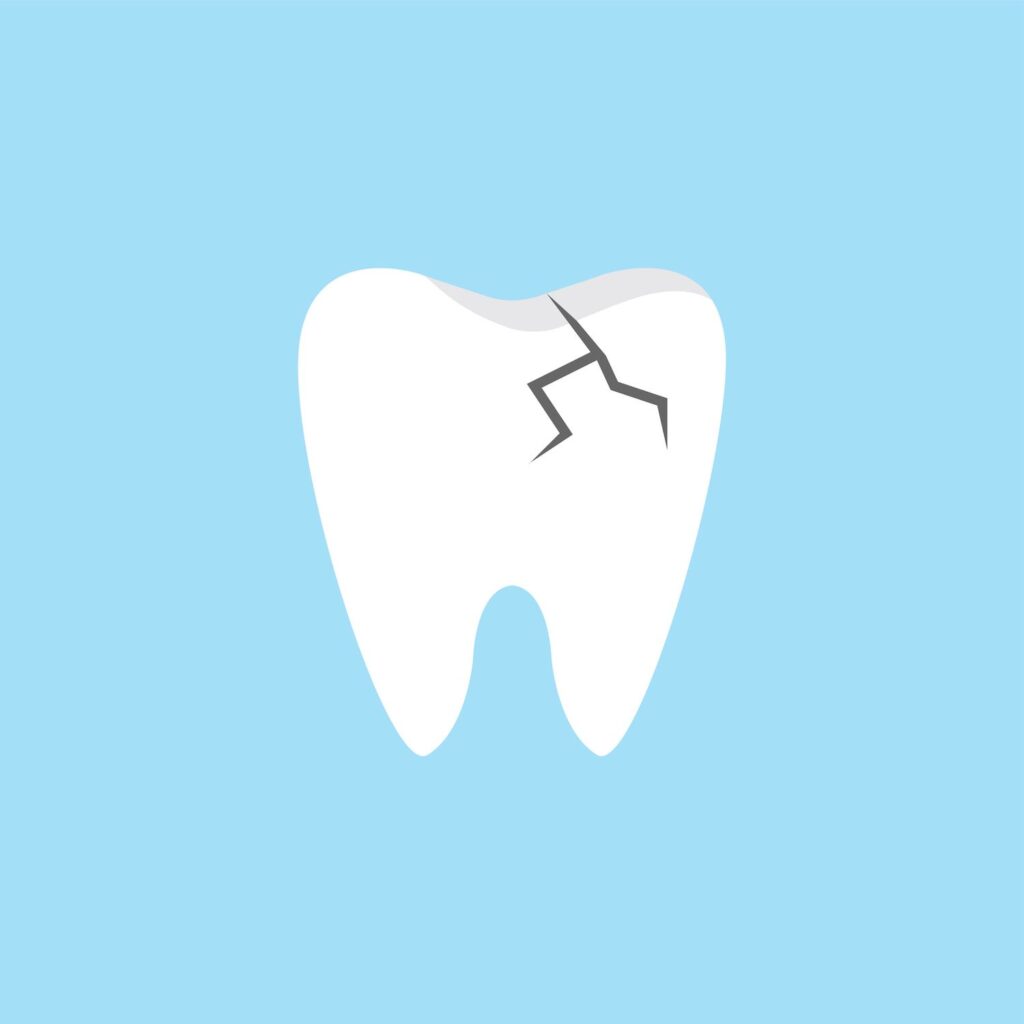Your teeth bite and chew regularly throughout the day. They are designed to tear into food and grind it without issue. However, sometimes an accident can occur that may make a tooth crack. A serious fracture in a tooth can not only disrupt the appearance of your smile but also leave it vulnerable to further dental damage.
Do not ignore tooth breakage. Contact your dentist for an emergency evaluation of your tooth injury to determine the best way to restore its structure. To better know what to do in this scenario, read on to learn about the warning signs of a tooth fracture as well as the treatment you can expect to fix this injury.

Signs of a Tooth Fracture
Sometimes, a fractured tooth has a visible chip or crack on its surface. The crack will deepen and worsen without urgent treatment from a dentist. Then you might also see dark discoloration around the tooth’s injury.
In many cases, the dental patient will feel pain in the affected tooth, but the degree of discomfort may vary. You could experience a constant toothache. Or you may feel an intermittent sharp pain that worsens when you perform oral functions.
Tooth sensitivity is another common symptom of a dental fracture. The pain stems from damaged enamel, the outer layer of the tooth, exposing nerves in the tooth’s interior. When stimulated by an external element, like food, the nerves will send pain signals to the brain.
You could also see swelling around the broken tooth, especially in the jaw. However, in some instances, you will not feel any symptoms at all in the event of a dental fracture. For this reason, you should call your dentist if you suspect you suffered an injury for a professional evaluation. Delaying dental attention can cause the injury to worsen.
Treatment Options for a Broken Tooth
Treatment for a fractured tooth will depend on the severity of the injury as well as its location. A crack in the cusp of the tooth, the visible portion above the gumline, may require a dental crown. The ceramic cap will cover and seal over the injury to shield it from further harm.
But if the fracture extends below the gumline to the tooth’s root, you might need root canal therapy. In severe cases, the dentist may need to extract the tooth to prevent damage from extending to the rest of your smile. Sometimes, they can perform oral surgery to only remove the damaged part of the tooth and avoid an extraction.
A dentist will evaluate a dental injury by taking x-rays of your smile. They can see the extent of the tooth breakage with this imaging and recommend treatment accordingly.
If you worry about the aesthetics of your smile after suffering tooth breakage, let your dentist know. The dentist will provide you with custom crowns to ensure your teeth look both beautiful and natural after your restorative treatment.
